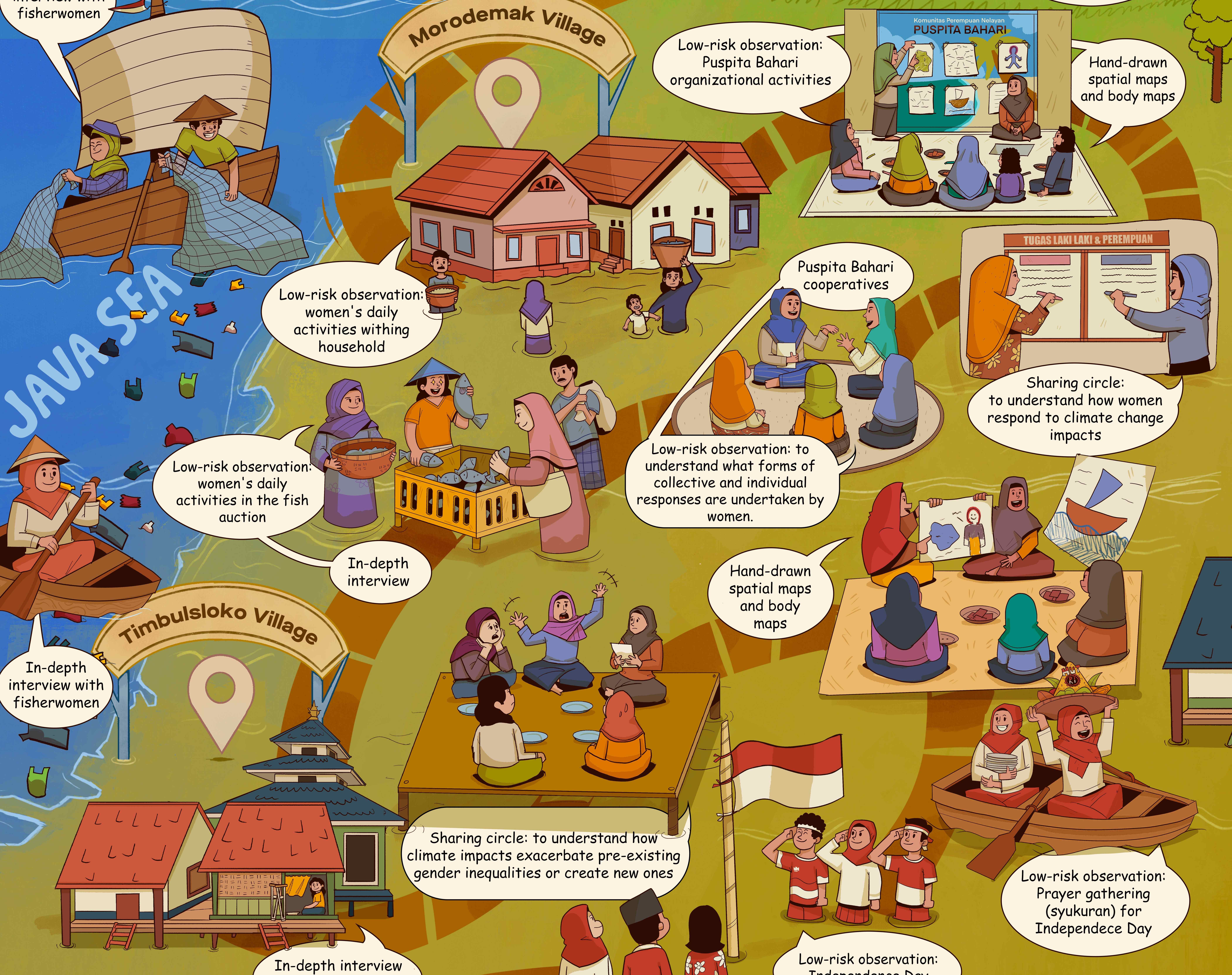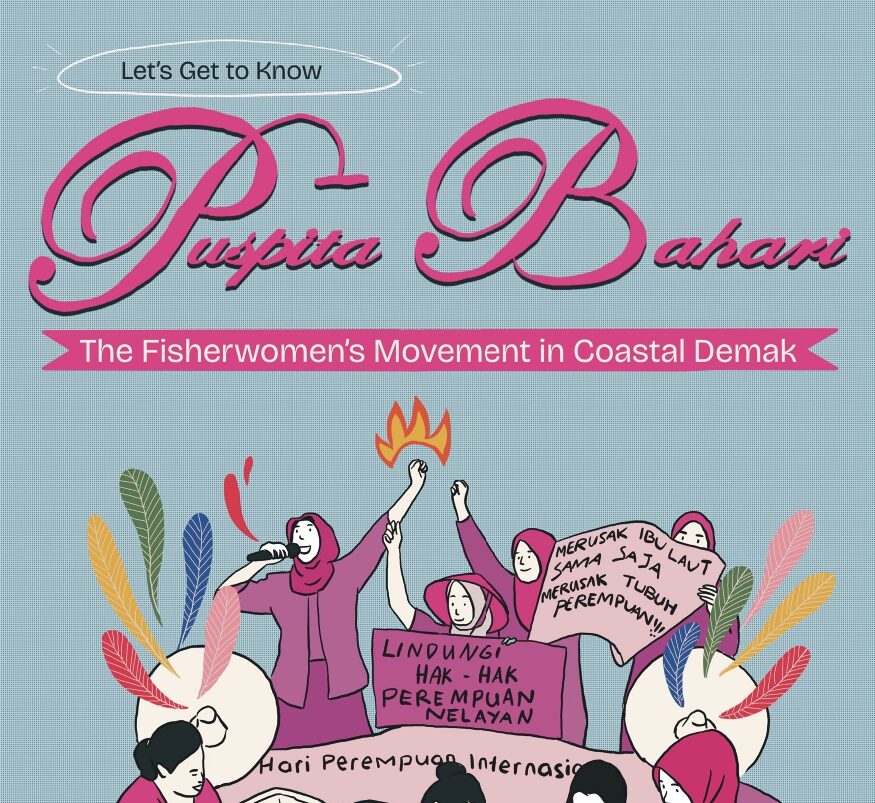An Illustrated Book Co-Created by Fisherwomen and Postgraduate Student in the School of Geography, University of Leeds.
This illustrated book, “Tidal Floods: Women, Fisheries, and the Climate Crisis in Indonesia,” is available in both English and Bahasa Indonesia. Download here.
By 2100, over 410 million people worldwide could be at risk due to rising sea levels. Over the last decade alone, global sea levels have already increased by 10 cm. Among the nations most at risk is Indonesia, an archipelago with the world’s second-largest coastline, stretching over 99,000 km.
Indonesia’s coasts are vital to global food security, as the country is a leader in fisheries, with the highest number of marine and industrial fisheries in Southeast Asia. However, these critical marine resources are under severe threat from climate change.
Rising sea levels and harmful development practices endanger not only the environment but also the lives and livelihoods of coastal communities.
Women in coastal communities face multiple impacts of climate change, including reduced income, loss of space, health issues, water scarcity, threats to sexual and reproductive health, and rising gender-based violence. Amid these challenges, they also show daily resilience and resistance, highlighting the need for intersectional, gender-transformative adaptation policies.
This illustrated book “Tidal Floods: Women, Fisheries, and Climate Crisis in Indonesia” delves into the stories of Indonesia’s fisherwomen, exploring the intersections of gender, environmental change, activism, and the future of the country’s coastal regions.
The creation of this book was funded by the United Kingdom Research and Innovation as part of the GENERATE Project (Gender, Generation, and Climate Change: Creative Approaches to Building Inclusive and Climate-Resilient Cities in Uganda and Indonesia), University of Leeds. This book is developed based on research data conducted by Andi Misbahul Pratiwi (PhD Student, School of Geography, University of Leeds) in 2024. The research was conducted using the Feminist Participatory Action Research (FPAR) method, involving 38 fisherwomen in coastal villages, Demak, Central Java, Indonesia.



